
Revelation Hope – Pergamum and Thyatira
The Message to Pergamum
Read Revelation 2:12–17
The message to the church in Pergamum gets straight down to business:
“I know where you live—where Satan has his throne,” Jesus says.
A battle of ideas is being fought here.
This church dwells in a stronghold of paganism and is in danger of losing true teaching.
There are three things Jesus notes about this church:
-
It existed in a dangerous place.
-
It remained true to the name of Christ.
One of its members—Antipas—has been put to death. No-one is sure who he was but his name has the interesting meaning of “against everyone.”
The meaning reflects the typical Gentile accusation against Christians that they were “haters of the human race.”
The people of the Roman Empire applied this meaning to Christians because they refused to participate in various aspects of the civil religion expected of all good Roman citizens.
At the least, many considered Christians as antisocial and regarded their presence as bad luck for any community.
While the Bible does not give details, the Roman governor probably executed Antipas for being a Christian.
The procedure in Antipas’ case may have been the one described 15 years later by the governor Pliny in a letter to the emperor Trajan:
“I have asked the accused whether they were Christians.
If they confessed, I asked a second and a third time, threatening penalty.
Those who persisted I ordered to be executed, for I did not doubt that, whatever it was they professed, they deserved to be punished for their inflexible obstinacy …
I dismissed those who said they were not or never had been Christians, and who in my presence supplicated the gods and placed wine and incense before your [Trajan’s] image, and especially cursed Christ, which I hear no true Christian will do.”
The Big Picture
Jesus counsels each of the seven churches according to their needs. As He gives messages through John, He assesses their strengths and weaknesses, and prophesies what will happen to them as a consequence.
The experiences of each of the seven local congregations are reflected in a wider sense by the Christian church beyond the first century.
The message to Ephesus to return to its first love, and to Smyrna to be faithful despite its sufferings, is encouraging to all who share those experiences.
In this session, Jesus offers counsel and encouragement to those in Pergamum who are facing internal problems related to compromising their faith, and to those in Thyatira who are experiencing problems with a false prophet leading them astray.
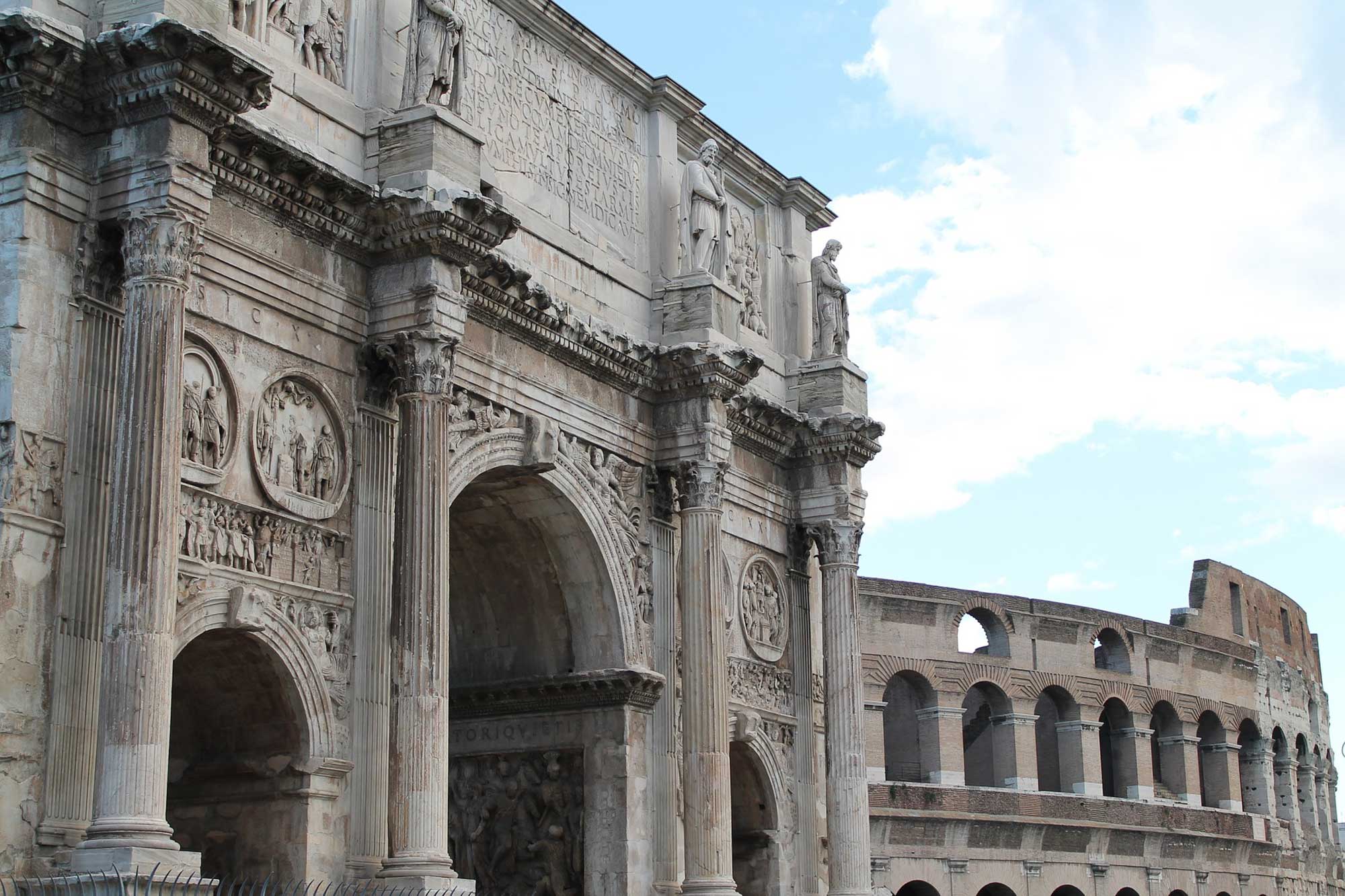
Trajan responded that the authorities should not seek Christians out or try them on the basis of anonymous accusations.
If openly brought to the governor’s attention, however, officials should handle them as Pliny had described. Probably a hostile neighbour— either Jew or Gentile—accused Antipas to the governor.
Imagine living in a place where you never knew which neighbour might report your faith to the authorities!
3. There were a few problems in the church.
Verse 14 describes the problems:
“Nevertheless, I have a few things against you: You have people there who hold to the teaching of Balaam, who taught Balak to entice the Israelites to sin by eating food sacrificed to idols and by committing sexual immorality.”
Tolerance Towards False Teachings
Some of the members of the church in Pergamum held to the teaching of Balaam— meaning, some of them had become tolerant of false teaching and behaviour.
They did not deny Christ but, at the same time, they tolerated false teachings.
Some believers at Pergamum were participating in the pagan festivals and 16 eating food offered to idols.
Christians were getting caught up in the pagan way of life and encouraging other Christians to join them.
Remember the previous session, discussing the letter to the church at Ephesus?
In verse 15, we have another reference to the Nicolaitans.
Here, the term is used in parallel with Balaam.
These are Greek and Hebrew names respectively. “Nicolaitan” means “the one who conquers the people” and “Balaam” means “the one who swallows up the people.”
While the church in Ephesus did not like their practises, the church at Pergamum accepted them with a degree of tolerance.
The key idea in this letter to the church is the danger of compromising the Christian faith by false teaching.
Why can false teaching be dangerous?
The Christians in Pergamum were compromising their belief with paganism.
Compromise is a subtle thing. It’s nice to have people think well of us.
But Jesus will have nothing of it. This is why there is a call for repentance in verse 16.
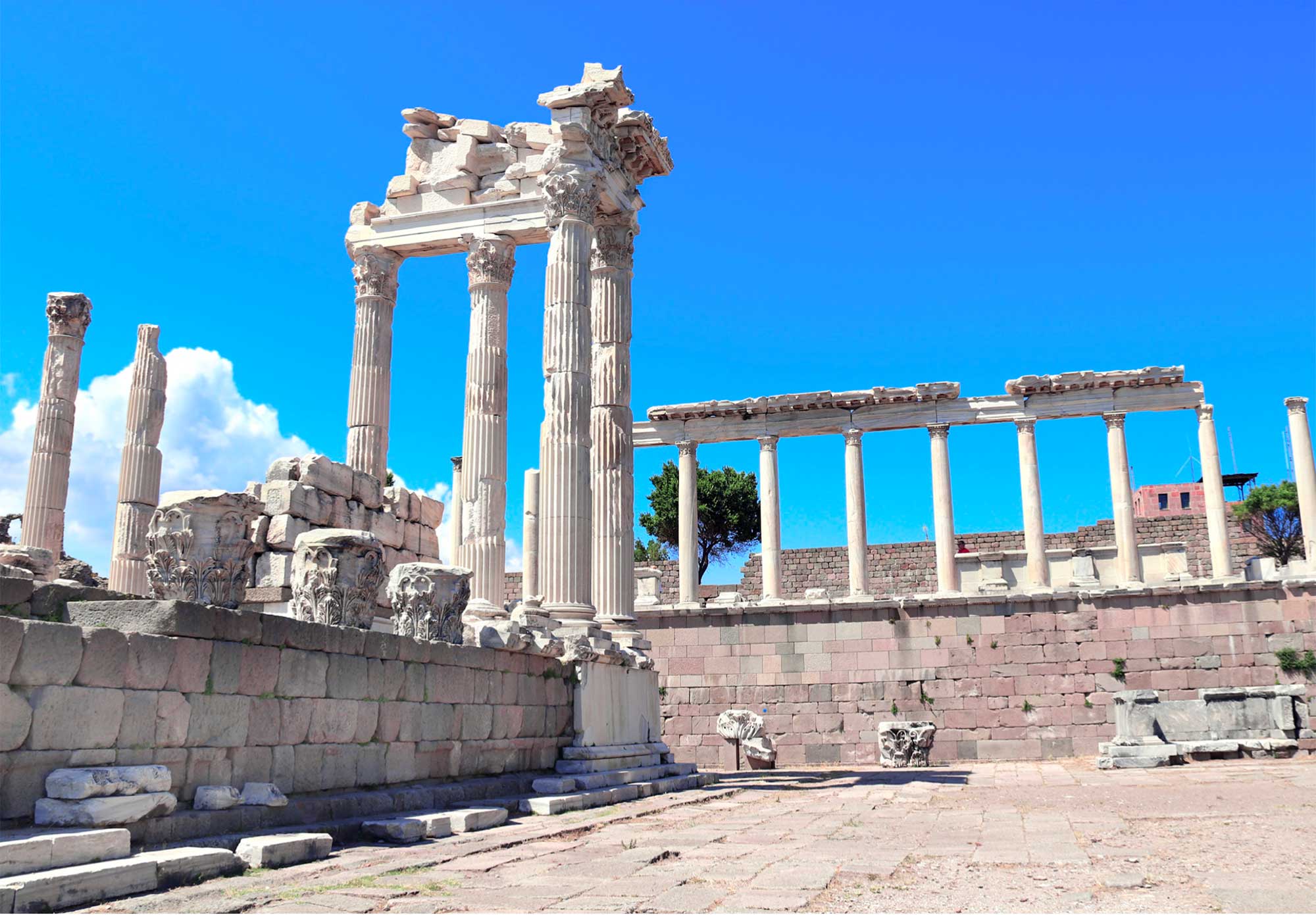
Promises to Those who Overcome
Along with the call for repentance, a wonderful promise is given in verse 17.
“To him who overcomes, I will give some of the hidden manna. I will also give him a white stone with a new name written on it, known only to him who receives it.”
Hidden manna
The people of Israel were given manna as food when they were wandering in the desert during the Exodus. To remind them of how God provided for them, a pot of manna was hidden within the veil in the sanctuary. And, in John 6:33, Jesus said
He is that manna that came down from heaven.
White Stone
In some ancient court proceedings, the judge would give a white stone for acquittal or a black stone for guilty. The white stone symbolises God’s favour toward those who overcome.
New name
In Hebrew, a name was thought to represents a person’s character. In several of the Old Testament stories, God changed a person’s name to indicate they now had a new relationship with Him.

What was happening here in Pergamum eventually began to happen generally in the early centuries of the Christian church’s existence.
The surrounding pagan culture put enormous pressure on the Christian church.
The young church growing within the Roman Empire at Pergamum at first resisted compromise with paganism and remained true to Christ.
However, New Testament writers predicted that compromise would threaten them and sometimes prevail.
In 2 Peter 2:1–3, another of Jesus’ disciples and an early Christian leader related the experiences of Israel as recorded in the Old Testament, and compared the experience with what he predicted would happen in the Christian church.
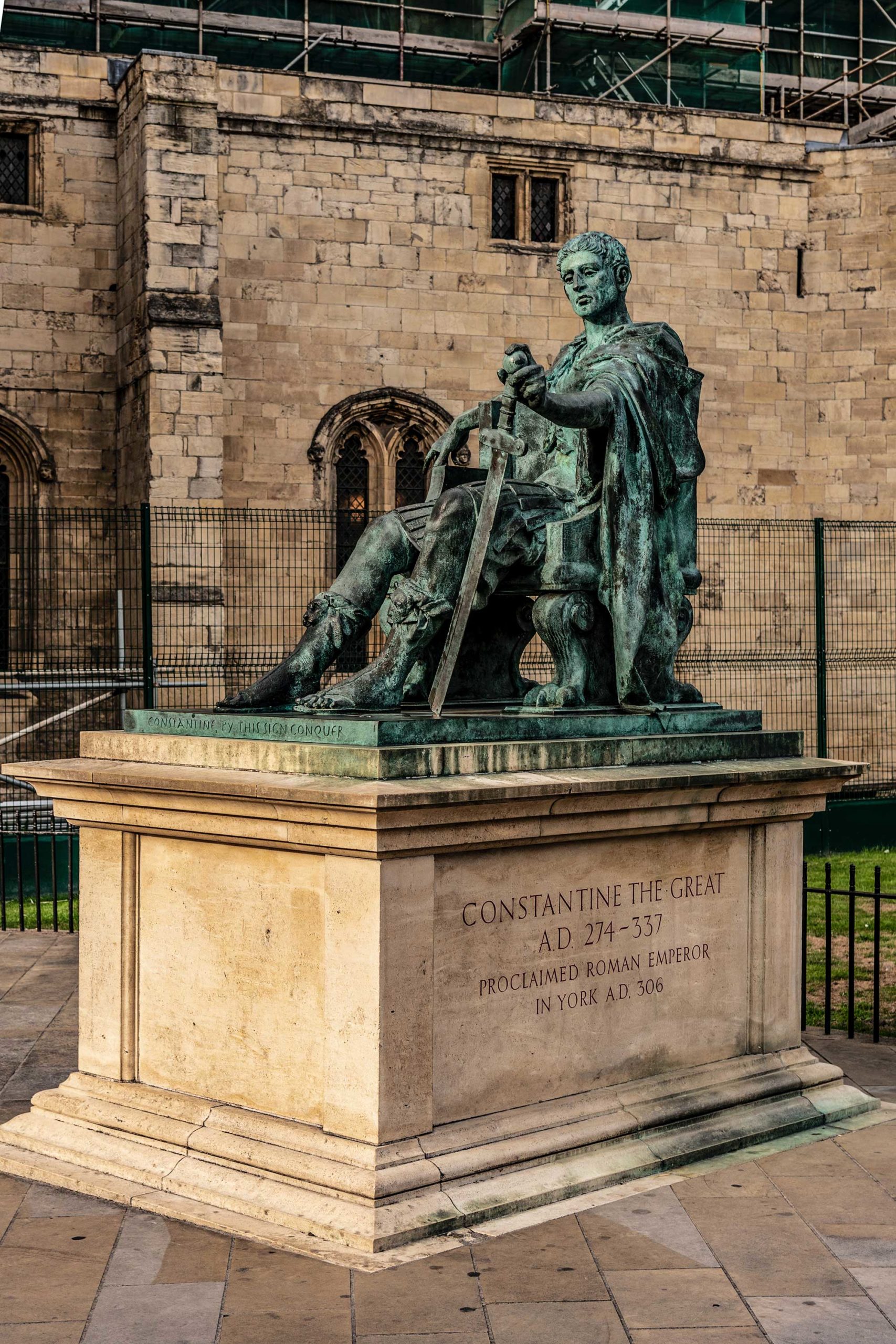
The surrounding pagan culture put enormous pressure on the Christian church.
An early Christian leader talked about false teachers and false teaching—a teaching that will cause people to lose their hold on Christ and be lost.
He also predicted that the way of truth will be brought into disrepute.
And this did happen in the early centuries of the Christian era.
Many in the Christian church went the way of those in Pergamum.
Sun worship in the form of Mithraism was powerful in the Empire.
Some Christians felt they could win the pagans to Christ if they adopted some of the pagan ways.
It seemed the progress of the growth of the church was accelerated when Emperor Constantine professed Christianity in the fourth century.

Tolerance Towards False Teachings
Some of the members of the church in Pergamum held to the teaching of Balaam— meaning, some of them had become tolerant of false teaching and behaviour.
They did not deny Christ but, at the same time, they tolerated false teachings.
Some believers at Pergamum were participating in the pagan festivals and eating food offered to idols.
Christians were getting caught up in the pagan way of life and encouraging other Christians to join them.
Remember the previous session, discussing the letter to the church at Ephesus?
In verse 15, we have another reference to the Nicolaitans.
Here, the term is used in parallel with Balaam.
These are Greek and Hebrew names respectively. “Nicolaitan” means “the one who conquers the people” and “Balaam” means “the one who swallows up the people.”
While the church in Ephesus did not like their practises, the church at Pergamum accepted them with a degree of tolerance.
The key idea in this letter to the church is the danger of compromising the Christian faith by false teaching.
Why can false teaching be dangerous?
The Christians in Pergamum were compromising their belief with paganism.
Compromise is a subtle thing.
It’s nice to have people think well of us.
But Jesus will have nothing of it.
This is why there is a call for repentance in verse 16.
But it came at a price. Jacquetta Hawkes, a British scholar, states:
“The Christians of the first three centuries had denied the tolerance and compromise of other faith, had gladly suffered horrible martyrdoms for refusing a pinch of incense to the imperial altars.
Yet with the malicious irony so often apparent in history, even while they fought heroically on one front, their position was infiltrated from another …
No more can a bird build its nest exclusively with its own feathers could the Christian leaders build a faith, rites and a church without picking up all manner of extraneous material from the Greco-Roman environment … perhaps most of all Christianity became involved with the sun god through Mithraism. …
The Empire was partly Christianised and the church partly paganised … I do not think it would be an exaggeration to say that in the fourth century and for some time afterwards there was for many people of the western empire a total confusion between state Christianity and the state sun worship it displaced.”

The essential message to Pergamum is:
• Repent.
• Turn away from wrong.
• Go in the direction of God.
What is it that leads to our repentance?
According to Romans 2:4, it is God’s kindness.
The Message to Thyatira
Read Revelation 2:18–29
This is a long message.
The church in Thyatira was a divided church, whose latter works were better than its former.
They received much praise and much blame.
Thyatira was the smallest and least important of the seven cities addressed in this part of Revelation.
It was a manufacturing place, famous for its pottery.
But today, there is little of the old city to see.
The city has been destroyed many times in wars between Christianity and Islam.
It has been built over as the modern city of Akhisar.

Corrupt Leadership Brings Corrupted Belief
This church described by Jesus was active:
its love, faith and service were improving all the time.
But the big problem was that they tolerated wicked leadership (see verse 20).
There was a woman whom John calls Jezebel.
She claimed to be a prophetess and was leading people astray.
Verses 20 and 21 describe the situation:
“Nevertheless, I have this against you: You tolerate that woman Jezebel, who calls herself a prophetess.
By her teaching she misleads my servants into sexual immorality and the eating of food sacrificed to idols.
I have given her time to repent of her immorality, but she is unwilling.”
Whoever she was, Jezebel appears to represent the Thyatira branch of the group labelled “Nicolaitans” and “those who hold to the teaching of Balaam” (see verses 2:14,15).
All three designations include the same two problems:
eating food offered to idols and committing fornication.
When we go to the Christian writings of the second century, the same two issues appear regularly.

Civil Duties Imposed by Rome
The Roman Empire required all non-Jews to participate in the civil religion.
The Romans tolerated all kinds of religious practices but no matter what your religion was or where you came from, they expected you to take part in the ceremonies and public events of Roman society.
It did not matter what religion you were, it was part of your duty as a citizen to be involved.
Serious consequences awaited those who did not participate, even without the death penalty.
For example, people could be ostracised from the trade guilds, in which they networked to build their businesses.
They would lose their influence on the development of society or the improvement of their position within it.
As a result, those who avoided Roman civil religion became poor, powerless social outcasts.
For the Western world today, wealth and security seem to represent the highest goals of society.
But the Greco-Roman world had an even higher goal: status.
People revelled in the honour and esteem of others, and poured shame on those who did not conform.
They would lose their influence on the development of society or the improvement of their position within it.
As a result, those who avoided Roman civil religion became poor, powerless social outcasts.
For the Western world today, wealth and security seem to represent the highest goals of society.
But the Greco-Roman world had an even higher goal: status.
People revelled in the honour and esteem of others, and poured shame on those who did not conform.
First-century Christians who refused to participate in Roman civil religion suffered serious consequences in business, civil affairs and social contact.
The gospel is free but it can cost us our reputations, our families, our jobs and even our lives.
Jesus calls His followers to total commitment, no matter what the consequence.
But He rewards that total commitment with meaning and purpose in this life, and exalted status in the life to come.
We noticed this in the letter to Pergamum.
This brings us to an important principle we need to look at as we read Revelation.
John uses the Old Testament stories of the Israelites to illustrate what is happening to the followers of Jesus in New Testament times
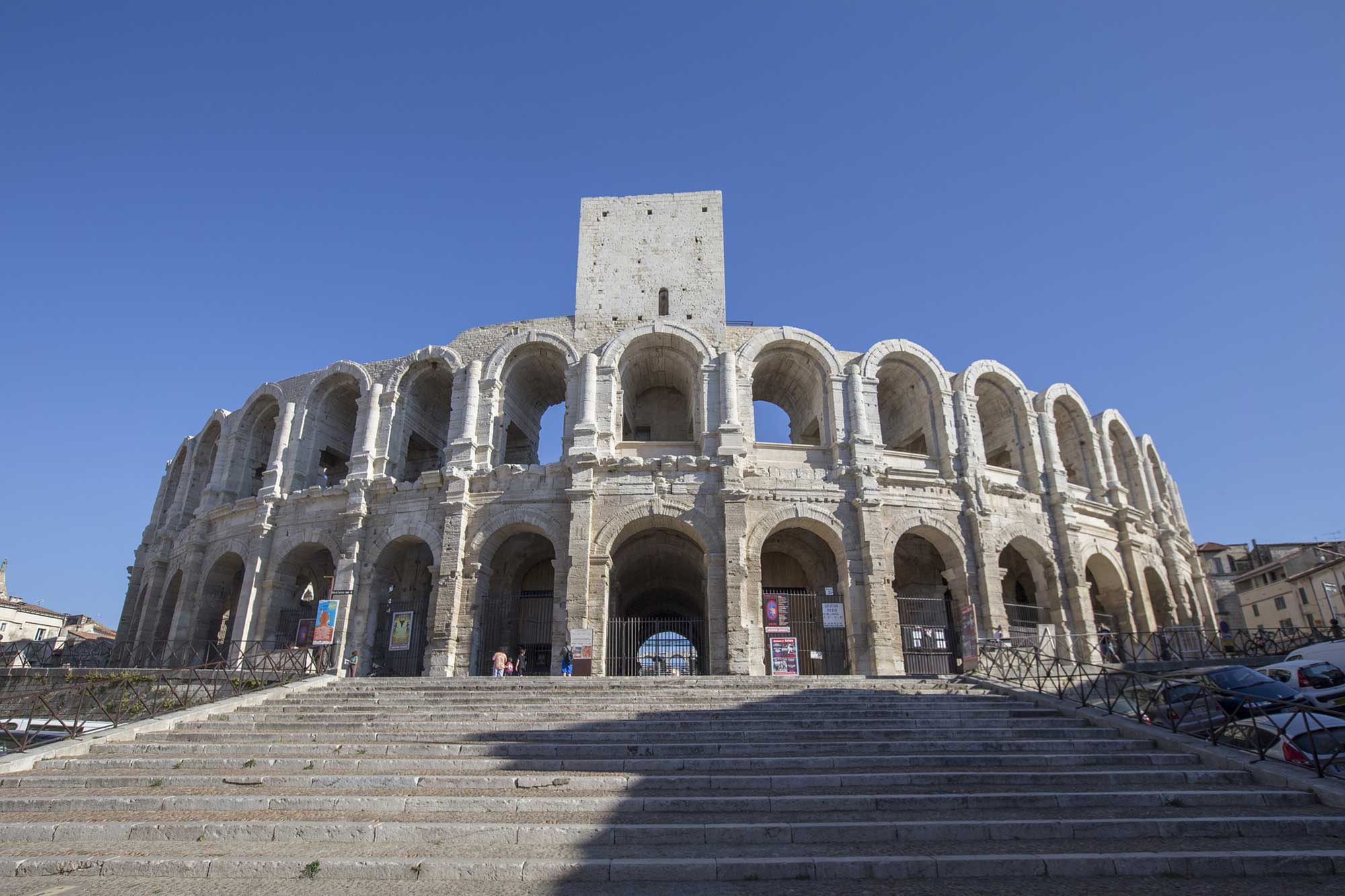
Global Church Covenant
In the Old Testament, God’s people lived in the land of Palestine.
In the writings of the Old Testament, nations were mentioned by name because they effected God’s people.
But since the time of Jesus and the raising up of the Christian church, God’s people belong to all races and nations.
And God’s people are found all over the world. They belong to many different religious groups.
In Revelation, there is a move from the literal geographical areas of Old Testament prophecy to a worldwide perspective in the New Testament.
When God called Israel out of Egypt, He assembled the people before Mount Sinai and revealed His covenant (contract or mutual agreement) with them.
In Exodus 19:5, 6, God bestowed on them a number of titles: a treasured procession, a kingdom of priests and a holy nation.
Their side of the covenant, to maintain this status, was to obey God fully and keep His covenant.
The implication was that if they did not fulfil their part of the agreement, they would no longer have this chosen status alone.
A major aspect of the Old Testament covenant resembles what we could call a “contract” today.
In a “covenant” two parties enter into a relationship of some kind: to build a house, to get married, to go to school.
All these things involve a connection between people, or between a person and an institution.

Biblical Blessings and Curses
An interesting aspect of the Old Testament covenant is the part about “blessings” and “curses” (for example, see Deuteronomy 28).
While such language sounds strange in today’s world, the idea behind it is not.
The concepts expressed in the covenant are important concepts we will see coming out in the prophecies of Revelation.
It is important to notice there were conditions for the nation of Israel occupying the favoured status.
But the history of Israel as revealed in the Old Testament shows how the people repeatedly wandered away from the covenant.
God told them what He would do to them if they did fail.
Yet God kept calling them back and renewed His covenant with them.
An example of this is found in Jeremiah 31:31–33.
Jesus would have come and died among them.
The Jews would have told the world of this and then out of Jerusalem would have come a final call for people of all nations to accept Him.
And many would have accepted the invitation.
But those who had rejected the call would have assembled an army called “Gog and Magog” (see Ezekiel 38 and 39).
These forces would have invaded Palestine and surrounded the city of Jerusalem but God would have stepped in and destroyed them.
From this last battle, God would have begun to renew the earth and make it as it was meant to be in the beginning.
However, all this is hinged on one word—if.
If Israel had obeyed God, this is how things would have worked out for them.
But it came at a price. Jacquetta Hawkes, a British scholar, states:
“The Christians of the first three centuries had denied the tolerance and compromise of other faith, had gladly suffered horrible martyrdoms for refusing a pinch of incense to the imperial altars.
Yet with the malicious irony so often apparent in history, even while they fought heroically on one front, their position was infiltrated from another …
No more can a bird build its nest exclusively with its own feathers could the Christian leaders build a faith, rites and a church without picking up all manner of extraneous material from the Greco-Roman environment … perhaps most of all Christianity became involved with the sun god through Mithraism. …
The Empire was partly Christianised and the church partly paganised …
I do not think it would be an exaggeration to say that in the fourth century and for some time afterwards there was for many people of the western empire a total confusion between state Christianity and the state sun worship it displaced.”

God’s blessings and threats to any nation are conditional on the response of the nation.
Notice how God relates to nations in Jeremiah 18:5–10. If God says He will destroy a nation but it repents, He responds by saying He will not destroy it. This happened in the situation of Nineveh. Jonah said it would be destroyed but God did not do so because the people repented.
When Jesus knew the Jewish leaders were planning to kill Him, He told them a parable about themselves.

A New Covenant in Christ
Read Matthew 21:33–43
No longer does any nation or group of people have an exclusive right to be God’s chosen people of the covenant.
In Christ the covenant is for all, both Jew and gentile, who accept Jesus Christ as Lord and Saviour.
Jews during Jesus’ time prided themselves on being descendants of Abraham, but the New Testament writers understood this as now applying more broadly to those who follow Jesus.
Anyone who submits himself or herself to the Jewish Messiah (Jesus) is accepted as Abraham’s seed and heirs to the promises (see Galatians 3:26–29).
Peter rejoices that in his day those who were not the people of God—that is, non-Jews who believe in Christ—can now be included in Israel as the covenantal people of God because of what Christ has done (see 1 Peter 2:9, 10).
These writers employed titles like “chosen people”, “royal priesthood” and “holy nation” to describe the Christian believers.
These same titles were first used by God when He made His original covenant with Israel at Mount Sinai.
The early Christian church included many Jews who accepted Christ.
In Romans 11, Paul stated that God had not rejected all Jews.
Paul himself was a Jew who believed in Jesus. He also said there was a remnant in Israel who believed, just as there was in the days of Elijah.
He likened Israel to being a trunk of an olive tree: some branches have been broken off because of unbelief, and some non-Jews or Gentiles have been grafted into the main stock of Israel because of their belief in Christ (see Romans 11:13–21).
The church spoken of in Revelation will contain both Jews and Gentiles who believe in Christ.

Key to Understanding Revelation
In Revelation, the experiences of Israel in the Old Testament were used to illustrate what was happening within the church.
This was the position held by most Christians throughout the Christian era.
With this in mind, we have an important key to understanding the prophecies of Revelation.
The prophetic focus of Revelation is on the worldwide Christian church.
In all countries and among all races are people who are God’s people because of their acceptance of Jesus Christ.
In Revelation, the promises made to Israel as a literal nation—if they had been faithful—are revised, to allow them to be fulfilled in the experiences of the Christian church.
In Revelation, the experiences of Israel in the Old Testament were used to illustrate what One example of this is the battle of Gog and Magog.
Where and when will it be fought?
In Old Testament times, these powers were come down from the north and invade Palestine, as Ezekiel 38 and 39 predicted.
Now we find the scenario adjusted somewhat in 14 Revelation 20:7–9.
It becomes obvious that reading the Old Testament gives us valuable background material for understanding Revelation.

Babylon Represents Corrupt End-Time Powers
When the Book of Revelation talks about the end of the world, it does so using the language of the fall of Babylon.
In the ancient world, Babylon was a city that ruled a great empire.
It was frequently mentioned in the Bible by the Old Testament prophets.
They also spoke of its downfall in graphic language.
It was a city through which the river Euphrates ran.
When the city was captured by Cyrus, he dried up the waters of the river to allow his armies to enter.
At the time, Babylon held captive God’s people, the Jews.
But Cyrus allowed them to return to their city, Jerusalem.
In the Book of Revelation, we will see all the wicked religious powers on earth at the end time (described as “Babylon”) seated on many waters (the political powers supporting her).
She holds God’s people captive. But the Bible describes Jesus leading the armies of heaven against Babylon.
As this happens, the fall of Babylon is described as the waters of the river Euphrates drying up (political powers withdraw their support for her).
Jesus is described as coming from the east (as did Cyrus).
He delivers God’s people (as did Cyrus) and allows them to return, not to the old city of Jerusalem in the Middle East, but to the New Jerusalem.
[We will come back to this in the last few chapters of Revelation.]
But it came at a price. Jacquetta Hawkes, a British scholar, states:
“The Christians of the first three centuries had denied the tolerance and compromise of other faith, had gladly suffered horrible martyrdoms for refusing a pinch of incense to the imperial altars.
Yet with the malicious irony so often apparent in history, even while they fought heroically on one front, their position was infiltrated from another …
No more can a bird build its nest exclusively with its own feathers could the Christian leaders build a faith, rites and a church without picking up all manner of extraneous material from the Greco-Roman environment … perhaps most of all Christianity became involved with the sun god through Mithraism. …
The Empire was partly Christianised and the church partly paganised …
I do not think it would be an exaggeration to say that in the fourth century and for some time afterwards there was for many people of the western empire a total confusion between state Christianity and the state sun worship it displaced.”

Who is Jezebel?
In the Old Testament, the prophets were the guardians of the covenant.
They were continually calling Israel back to it when they wandered away.
The book of Revelation describes how the Christian church should relate to the covenantal promises.
But, remember, there are both blessings and curses.
As with Israel, there are to be blessings if you obey, and curses if you don’t.
This we will see more closely when we look at the seven seals.
The woman prophet in the church at Thyatira is doing a work like Jezebel.
How do we understand what John is trying to say?
We must go back to the Old Testament to see what Jezebel did to God’s people.
What began by compromise in Pergamum is now being openly taught by this woman who claims to be a prophet.
She sets herself in opposition to John.

Why then is she likened to Jezebel of the Old Testament?
Jezebel was a Phoenician princess who worshipped Baal, the god of nature.
The Canaanites believed that Baals dwelt in trees, springs, mountains and rocks.
They were local gods called “Baalim” in plural form.
When the word was used as the singular, “Baal”, it could refer to the Canaanites’ chief national god.
He was the storm god who brought winter rain with storms and lightning.
Therefore, he was also the god of fertility of the land.
Baal was often associated with Asherah, the goddess of sexual love and fertility.
Images of her naked with grossly accentuated sexual features were created.
Prostitution was associated with her as a religious rite in the service of her as a god.
The Israelites were warned of the great danger that they would be tempted to worship the gods of the Canaanites when they entered their Promised Land.
They did, at times, succumb and it even led them to burning their children in the fire.
So when Jezebel came to wed Ahab, the king of Israel, she brought her prophets with her.
While not forbidding the worship of Israel’s God she introduced Baal worship.
She promoted a compromise between true and false faiths, while claiming to be a true prophet.

This led to a stand-off at Mount Carmelwith Elijah, which we will see re-enacted in Revelation 13, where the anti-Christian powers counterfeit the Mount Carmel fire from heaven.
It seems this woman John names “Jezebel” was claiming to be a prophet in the church at Thyatira.
She challenges John and claims to also have a prophetic gift.
She is encouraging the Christians in the city to attend the temple services where the social life of the city went on.
But part of this activity involved the eating of food offered to idols and sexual immorality.
It was the way of life of the city—to not attend could harm your social standing and even your livelihood.
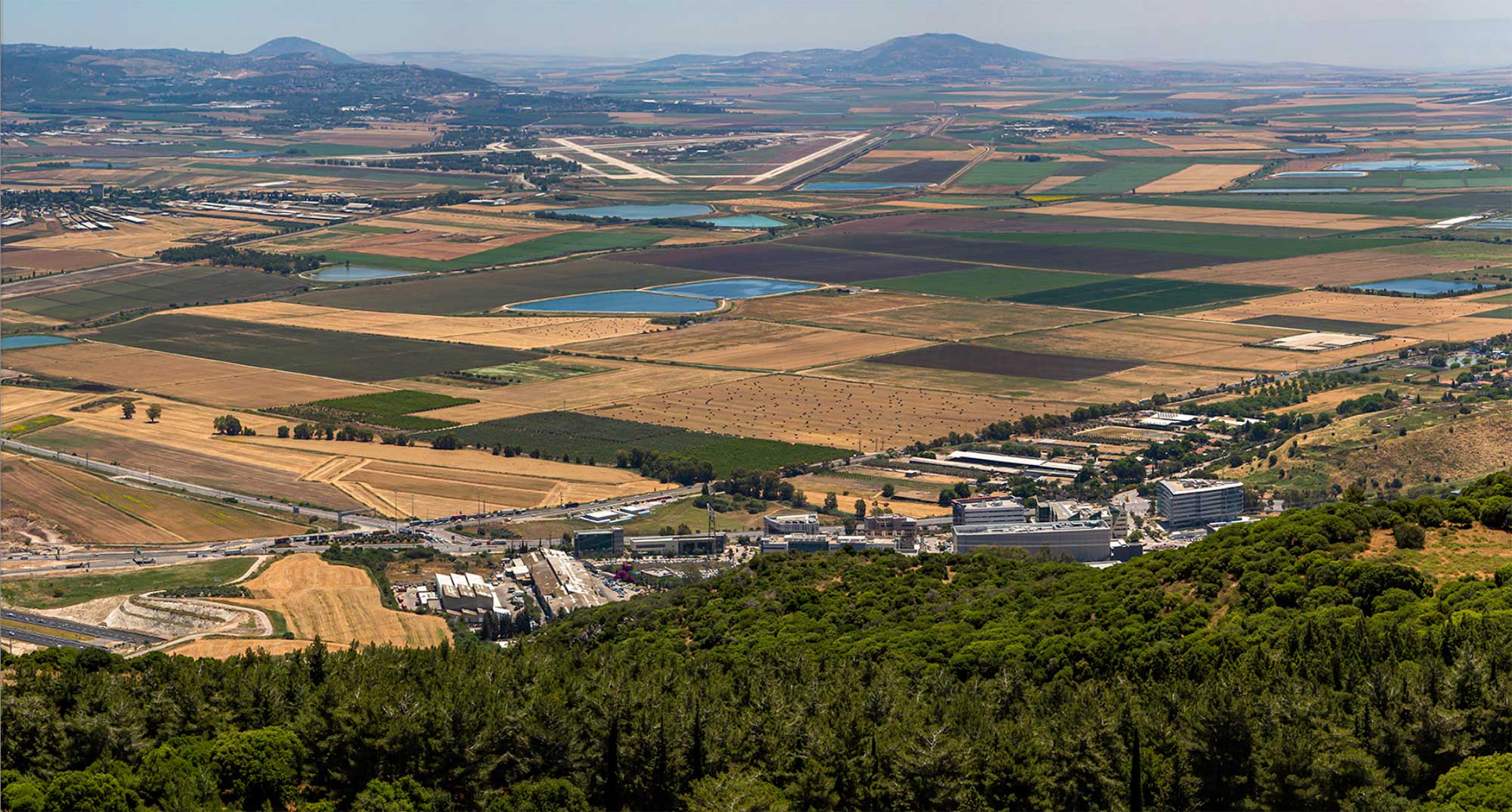
Prophets and Persecution in the Church
The early church was often challenged by false prophets.
True prophets teach people to obey the God of the Bible and call for repentance.
False prophets lead people into a false sense of security when wandering away from God.
In Thyatira, it seems most went the way of the false prophet Jezebel.
Read Revelation 2:24
Note in this verse that the term “rest” belongs to a group of words describing what is often called “the remnant”—those who remain faithful to God amid false teachings and persecution, such as in the end time.
This is the first time the word appears in Revelation.
It is remarkable to think that what happened at Thyatira was repeated in a larger scale in church history during the Middle Ages.
The larger numbers in the church at that time were led astray by the church leadership.
Science was also held back.
Many who did not conform were tortured and put to death.
Large numbers surrendered their conscience and went along with the trend.
But there were some who resisted and maintained a pure faith.
We will see more of them later on in Revelation.
In John’s day, those in Thyatira were told to hang in there—and keep their eyes on the reward (see Revelation 2:26–29).
Those who did will be given authority over the nations.
They will share in Christ’s reign.

Jesus calls His followers to total commitment, no matter what the consequence.
But He rewards us with meaning and purpose in our lives.
For a little more……..